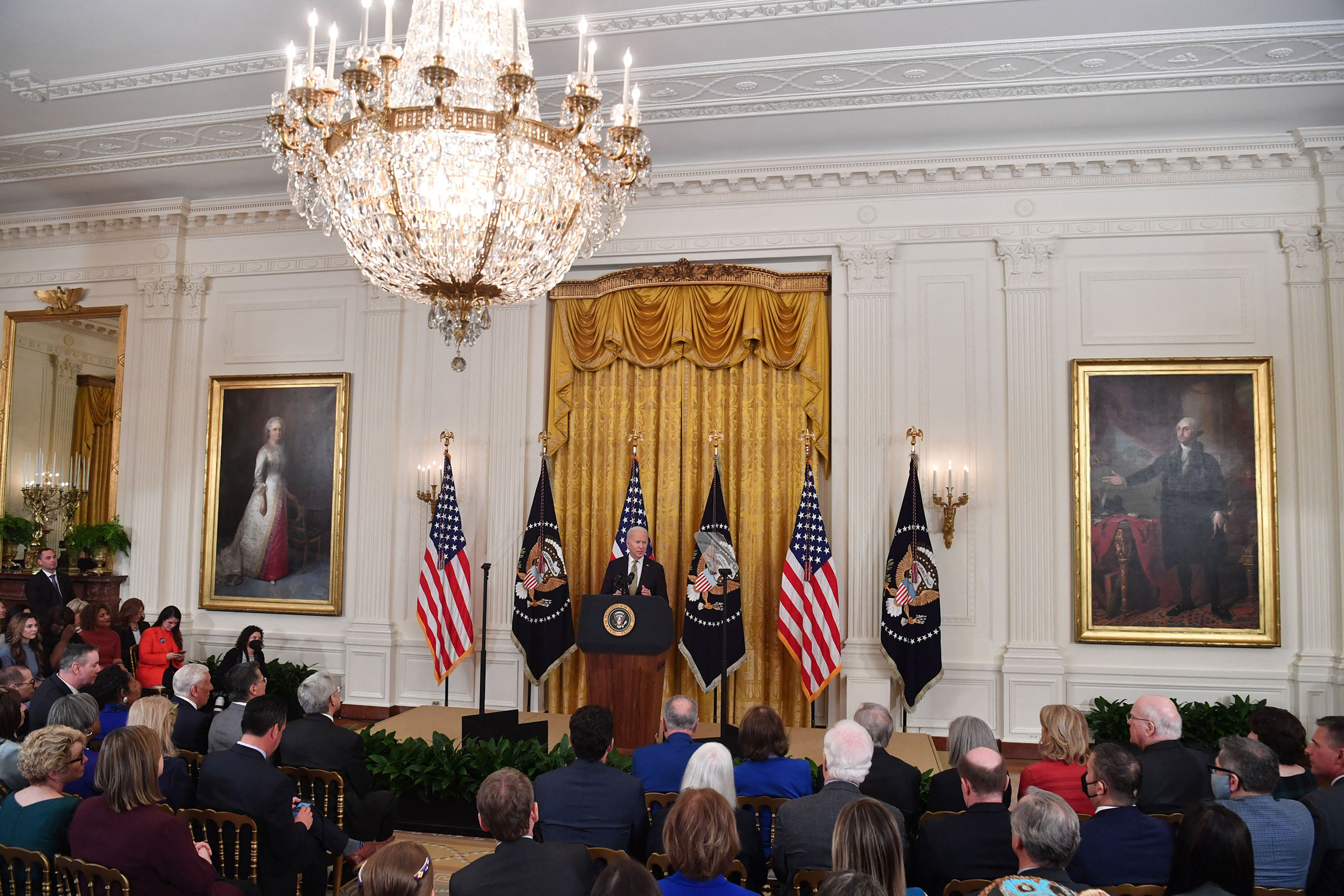
This article is part of the The DC Brief, TIME’s politics newsletter. Sign up here to get stories like this sent to your inbox.
There are only a handful of challenges that can unify Washington. Hurricane-relief packages and tornado-rescue plans are up there. Wildfires and earthquakes, too. The opioid epidemic bled across Red States and Blue States alike. COVID-19 tested that unity thesis, as did the need to reassess criminal justice. But at the end of the day, America in crisis usually gives DC permission to set aside political divisions.
Until, of course, the policy pits the protection of women against limitations on guns.
For the last three decades, a landmark piece of legislation aimed at protecting women had been assumed to be durable and uncontroversial. Bill Clinton signed the Violence Against Women Act into law in 1994, and Congress had routinely renewed it every five years. (It briefly lapsed in 2011.) The law provides money for police and prosecutors to go after those who target women, established sentencing guidelines for those crimes, and created a Justice Department unit specifically to combat gender-based offenses. Then, in 2019, Democrats sought to beef it up to include protections for women against their unmarried partners and stalkers. The efforts ran head-first into objections from the gun industry, which argued that the restrictions were onerous and nebulous.
So, for the last three years, the nation’s hallmark law to keep women safe fell into neglect, at least on paper. Sure, Congress found backdoor ways to fund its main provisions, but the symbolism of its fall from the books wasn’t to be missed. Everyone in the Capitol said yes when advocates for the law like Angelina Jolie called to ask for a meeting. But ultimately, the Violence Against Women Act became a footnote and a reminder that even politically popular and pragmatic measures can get tripped up by special interests.
At least until last week, when lawmakers shoehorned it back on the books for a five-year renewal as part of the $1.5 trillion stopgap spending plan that keeps the government open through the end of September.
Biden championed its renewal. “This law broke the dam of congressional resistance and cultural resistance and it brought this hidden epidemic out of the shadows,” the President said Wednesday in the East Room of the White House with, yes, Jolie in the crowd. But what he didn’t mention: the gun industry and the National Rifle Association (NRA) had once again flexed their influence, and convinced lawmakers to drop provisions from the law.
The update to the law was something near to Biden, who had championed a version of it dating back to 1990. After five decades in Washington, Biden still sees the Violence Against Women Act as something he’s most proud of, a legacy-defining piece of legislation that saved countless lives. (It also helped him out of the doghouse after he presided over the all-male confirmation hearing where Anita Hill testified about her alleged sexual harassment at the hands of Clarence Thomas.)
As much as the law says about how society treats women, it also speaks to the culture at play in Washington. On paper, everyone supported renewal broadly. There is hardly a member of Congress who hasn’t heard from a constituent—or family member—about violence facing women. But when confronted with the political reality of tightening gun restrictions, the measure suddenly turned toxic.
While the NRA is a shell of its former self as it has struggled under intense criticism in recent years and unrelenting scrutiny over its finances, it still managed to hold up the renewal of a law that, for most people, is common sense. Just the specter of an NRA interest in a Republican primary is chilling. And it is why any real conversations about guns are so hard to find these days.
As the law is written, those convicted of domestic abuse could have their guns taken away if they were married at any point to the victim, cohabitated with the victim, or had a kid with the victim. In the House-passed update from 2019, Democrats had also sought to make it harder for stalkers, those dating the victim, or those who had previously dated the victim to have guns.
That was a non-starter for the NRA.
Between the law’s lapse three years ago and its renewal last week, Democrats ultimately dropped their chase of the so-called “boyfriend loophole” in order to get Republican backing. In exchange, the update now includes new protections of survivors, more money for law enforcement against violence and sexual assault, and added funds for rape crisis centers and legal services. The NRA may be defanged. But the wrangling over this popular law shows the group still has the ear of Republicans and the fear of Democrats. So, at least for the next five years, ex-boyfriends and stalkers can rest easy knowing their guns are safe from federal confiscation.
Make sense of what matters in Washington. Sign up for the D.C. Brief newsletter.
More Must-Reads from TIME
- Donald Trump Is TIME's 2024 Person of the Year
- Why We Chose Trump as Person of the Year
- Is Intermittent Fasting Good or Bad for You?
- The 100 Must-Read Books of 2024
- The 20 Best Christmas TV Episodes
- Column: If Optimism Feels Ridiculous Now, Try Hope
- The Future of Climate Action Is Trade Policy
- Merle Bombardieri Is Helping People Make the Baby Decision
Write to Philip Elliott at philip.elliott@time.com